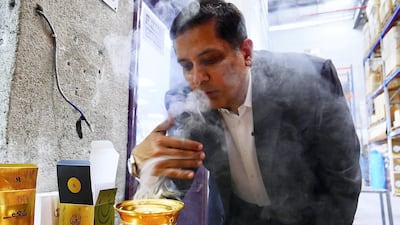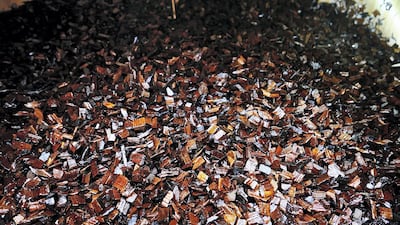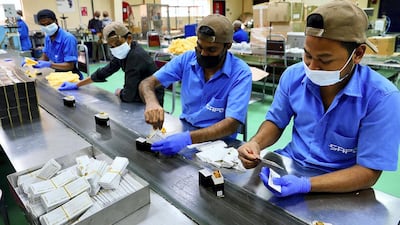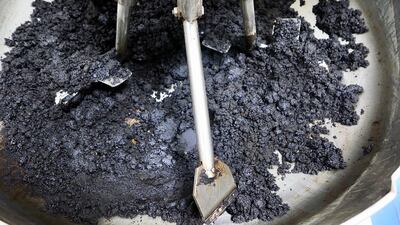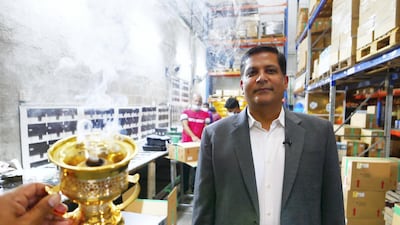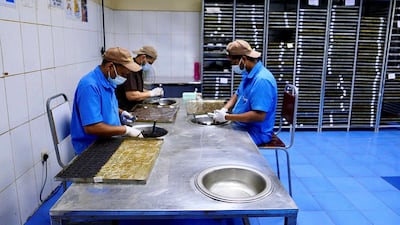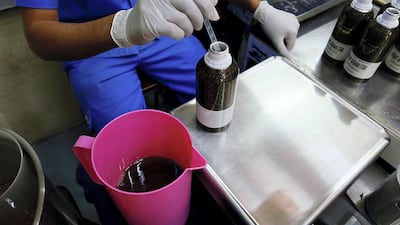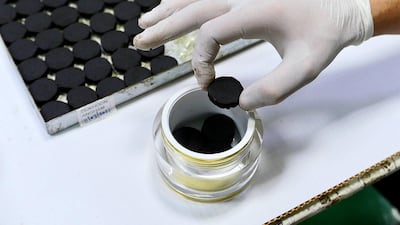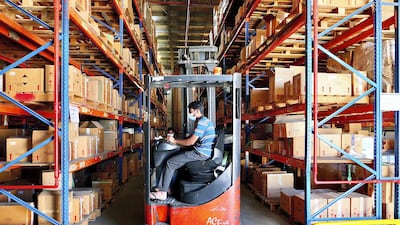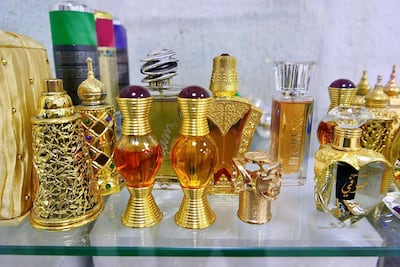Nestled in a quiet alleyway in a brimming industrial estate in Sharjah you will find the factory of one of the UAE's first perfume manufacturers.
When you walk through the doors of Swiss Arabian, the sweet smell of amber, jasmine and oud hits you.
The ingredients are sourced from around the world, including patchouli from Malaysia, vanilla from Madagascar and oud from India and the Far East, but the family-run business works its magic to “make them Arabian”.
The factory was founded in 1974 by Yemeni perfumer Hussein Adam Ali. He moved to the UAE from Yemen with the dream of producing a range of perfumes.
Today, he has taken a step back from the business and handed the reins over to his son, Nader Adam Ali.
"I have so many fond memories of helping in the factory as a young boy," Mr Adam Ali, who was born in Yemen, told The National.
“I was about 6 years old and would sit alongside the production line and manually cellophane wrap each perfume bottle, and pack and fill boxes.
“When I would see the products sitting proudly on shelves in shops, I would point and say, I helped make it. They were fond memories.”
The name Swiss Arabian was formed in recognition of its longstanding partnership with Swiss company Givaudan.
Mr Adam Ali's father started trading Swiss perfumes in Yemen in the 1960s.
When he sailed to the UAE, he switched from trading into producing, which is where the Swiss-Arabic infusion derived.
Today, the company produces 120 products across eight categories and manufactures about 3.5 million bottles of perfumes, oils, lotions and bakhoor boxes each month.
Ingredients from far and wide
The company gets its raw ingredients from around the world.
Oud is obtained from the Aquilaria tree, species of which grow in the mountain rainforests of Thailand, Indonesia, Myanmar and India.
The fragrant, dark wood used in incense and perfume is formed in the heartwood of Aquilaria trees when they become infected with a type of mould.
“The tree is infected by a fungus or mould, then will sometimes produce its defence mechanism, which is a form of resin, and that is where the oil comes from,” Mr Adam Ali said.
“Nowadays we generally buy through suppliers, but back in the day we used to own parts of the forests and extract the oils ourselves, but it’s a very specialised business.”
The company has four warehouses that span 35,000 square metres.
Oud, rose, musk and sandalwood are commonly used in high concentration in traditional and contemporary Arabian scents.
For ts premium products, the company buys pure oils from Turkey, Bulgaria and Saudi Arabia. These can cost up to Dh100,000 a kilogram, while the synthetic essences are priced at about Dh1,000 a kilogram.
Hand-rolled bakhoor
The bakhoor section of the factory is a small room in front of the building and there is a different variety on each production line.
About six workers sit hunched over a metal table and are in charge of hand-rolling bakhoor tablets.
Bakhoor are wood chips that have been soaked in perfume oil and are mixed with other natural ingredients, such as natural resin, sandalwood and essentials oils.
In this factory, the bakhoor tablets, which are often burnt in Emirati homes or at perfume stands in malls, are made from oud dust.
“The principal ingredient of bakhoor is oud dust, which is made of oud wood chips ground down,” Mr Ali said.
“Depending on the scent, we mix the dust with a mix of essential oils and a binder, such as water, and it’s placed into a mixer for two to three hours until it forms a kind of paste.
“The binder we use is actually a secret ingredient.”
Once the tablets have been rolled – just slightly bigger than a dirham coin – they sit at room temperature for about 15 to 20 days to harden before being packed for sale.
The factory produces 15 bakhoor scents, with prices ranging from Dh50 to Dh150 a box.
Boxes of raw wood chips are very popular.
“Oud muattar is one of our signature products, which is the chips soaked in oil,” Mr Adam Ali said.
A 500 gram bag sells for about Dh350.
"Then we have muattar mumtaz, which is of a similar price and the chips soak in the oil for about 25 days.
“Up to 30 to 40 different oils can be mixed together to make a fragrance.”
Fragrances such as shaghaf, which is a mix of oud, vanilla, praline, saffron and rose; and gharaam, which is jasmine, amber and saffron are in high demand.
While Mr Adam Ali studied in the US and had planned a career in finance, but he says he felt it was his duty to take over when his father stepped back from the business.
He plans to expand the product range and keep the business running on the "sweet scent of success".
